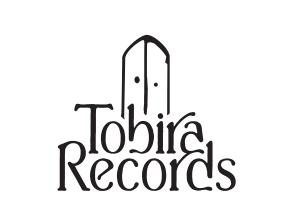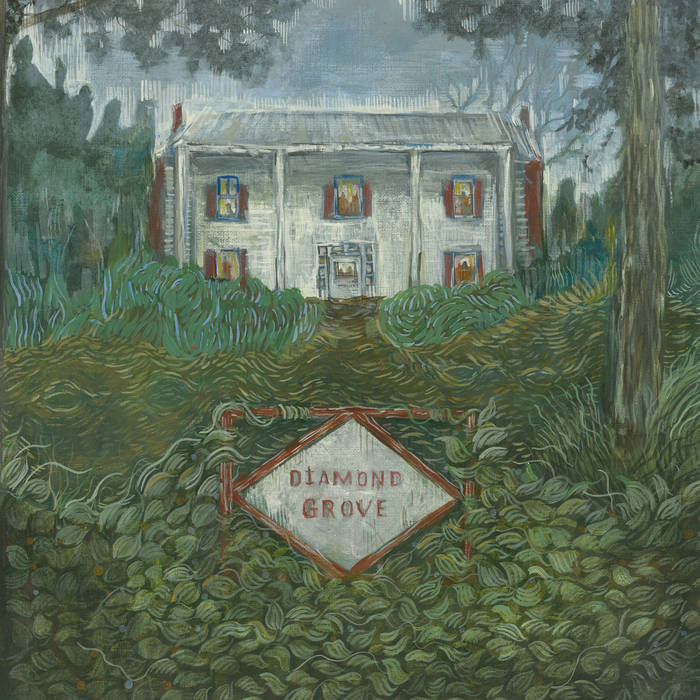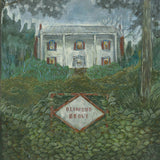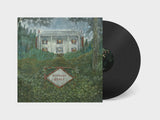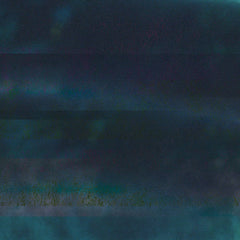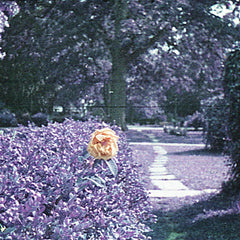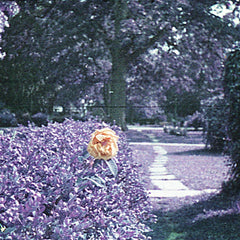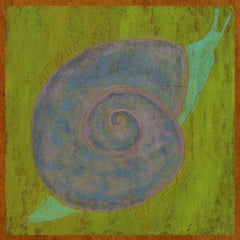Weirs // Diamond Grove LP
- Availability:
アメリカ・ノースカロライナの実験フォークバンドWeirsが、2025年10月に同国フォークレーベルDeal Lifeからリリースしたレコードです。
トラディショナル・フォーク〜アメリカーナ〜讃美歌8曲を収録。
レーベルその他作品はこちら /// Click here to see more Dear Life releases available at Tobira.
----------------------------------------------
12" black vinyl.
Tracklist:
1. I Want to Die Easy 02:48
2. Lord Randall 09:14
3. Everlasting 03:51
4. Edward 07:14
5. Doxology (I) 01:12
6. (A Still, Small Voice) 02:57
7. Lord Bateman 20:45
8. Doxology (II) 00:35
Text excerpt by Dear Life:
"[...] Weirs is an experimental collective grown out of central North Carolina’s music scene––one that is equal parts old-time and DIY noise. Non-hierarchical in form, past Weirs performances have included anywhere from two to twelve people. In September 2023, nine traveled up US-58 to pack into the living and dining rooms of the dairy farm main house, still in the family of band member and organizer Oliver Child-Lanning, whose relatives have been there for centuries. This Weirs lineup—neither definitive nor precious—includes Child-Lanning; Justin Morris and Libby Rodenbough (his collaborators in Sluice); Evan Morgan, Courtney Werner, and Mike DeVito of Magic Tuber Stringband; and stalwarts Andy McLeod, Alli Rogers, and Oriana Messer who played deep into those late-summer evenings. What resulted are the nine tracks of Diamond Grove, recorded with an ad hoc signal chain assembled from a greater-community’s worth of borrowed gear.
The Weirs project began as tape experiments on traditional tunes Child-Lanning made under the name Pluviôse in winter 2019. This evolved into the first Weirs record, Prepare to Meet God, which was self-released in July 2020 and was a collaboration between Child-Lanning and Morris during COVID. The strange conditions of that debut—a communal tradition of live songs recorded apart in isolation—are undone by Diamond Grove, a record rooted in the unrepeatable convergence of people, place, and time. On the new record, Weirs continue their search for how best to forward, uphold, and unshackle so-called “traditional” music. They are songcatchers, gathering tunes on the verge of obscure death. Their wild, centuries-spanning repertoire plays like an avant-call-the-tune session—a kind of Real Book for a scene fluent in porch jams, Big Blood, Amps for Christ, and Jean Ritchie. Weirs catch songs whose interpretive canon still feels ajar—open enough to stand next to but never above those who’ve sung them before. These aren’t attempts at definitive versions. The recordings on Diamond Grove feel like visitations rather than revisions. And the question Weirs asks on this record is not how to simply continue the tradition of their forebears, but how traditional music could sound today.
For Weirs, the history of this tradition could be taken less from the folk revival than from musique concrète; less from pristine old master recordings than something like The Shadow Ring if they’d come from the evangelical South. One listen to “(A Still, Small Voice)” and you’ll hear the power of the hymn give way to its equal: the floorboards, fire crackle, dinners made and eaten. This tension between preservation and degradation is the inner light of Diamond Grove. Take “Doxology I”: the melody of “Old Hundred”, a hymn from the Sacred Harp tradition, is converted to MIDI, played through iPhone speakers, and re-recorded in the September air. To some revivalists, this hymn sung with all the glory of fake auto-tuned voices might sound sacreligious. But ears attuned, say, to the hyperpop production of the last few decades will immediately understand the tense beauty of hearing digitally-artifacted shape-note singing. This same tension animates “I Want to Die Easy.” Weirs’ version draws from A Golden Ring of Gospel’s recording, monumentalized in the Folkways collection Sharon Mountain Harmony. The melodies, words, structure are largely unchanged. But the “pure” clarity of voice in the early recording is gone. In its place, we hear the distancing sound of the dairy farm silo where Weirs recorded their version, its natural two-second reverb replacing pristine proximity. In this way, the sound of the recording site itself becomes equal to the traditional performance. [...]"
Artist : Weirs
Label : Dear Life
cat no : DLR064lp
アメリカ・ノースカロライナの実験フォークバンドWeirsが、2025年10月に同国フォークレーベルDeal Lifeからリリースしたレコードです。
トラディショナル・フォーク〜アメリカーナ〜讃美歌8曲を収録。
レーベルその他作品はこちら /// Click here to see more Dear Life releases available at Tobira.
----------------------------------------------
12" black vinyl.
Tracklist:
1. I Want to Die Easy 02:48
2. Lord Randall 09:14
3. Everlasting 03:51
4. Edward 07:14
5. Doxology (I) 01:12
6. (A Still, Small Voice) 02:57
7. Lord Bateman 20:45
8. Doxology (II) 00:35
Text excerpt by Dear Life:
"[...] Weirs is an experimental collective grown out of central North Carolina’s music scene––one that is equal parts old-time and DIY noise. Non-hierarchical in form, past Weirs performances have included anywhere from two to twelve people. In September 2023, nine traveled up US-58 to pack into the living and dining rooms of the dairy farm main house, still in the family of band member and organizer Oliver Child-Lanning, whose relatives have been there for centuries. This Weirs lineup—neither definitive nor precious—includes Child-Lanning; Justin Morris and Libby Rodenbough (his collaborators in Sluice); Evan Morgan, Courtney Werner, and Mike DeVito of Magic Tuber Stringband; and stalwarts Andy McLeod, Alli Rogers, and Oriana Messer who played deep into those late-summer evenings. What resulted are the nine tracks of Diamond Grove, recorded with an ad hoc signal chain assembled from a greater-community’s worth of borrowed gear.
The Weirs project began as tape experiments on traditional tunes Child-Lanning made under the name Pluviôse in winter 2019. This evolved into the first Weirs record, Prepare to Meet God, which was self-released in July 2020 and was a collaboration between Child-Lanning and Morris during COVID. The strange conditions of that debut—a communal tradition of live songs recorded apart in isolation—are undone by Diamond Grove, a record rooted in the unrepeatable convergence of people, place, and time. On the new record, Weirs continue their search for how best to forward, uphold, and unshackle so-called “traditional” music. They are songcatchers, gathering tunes on the verge of obscure death. Their wild, centuries-spanning repertoire plays like an avant-call-the-tune session—a kind of Real Book for a scene fluent in porch jams, Big Blood, Amps for Christ, and Jean Ritchie. Weirs catch songs whose interpretive canon still feels ajar—open enough to stand next to but never above those who’ve sung them before. These aren’t attempts at definitive versions. The recordings on Diamond Grove feel like visitations rather than revisions. And the question Weirs asks on this record is not how to simply continue the tradition of their forebears, but how traditional music could sound today.
For Weirs, the history of this tradition could be taken less from the folk revival than from musique concrète; less from pristine old master recordings than something like The Shadow Ring if they’d come from the evangelical South. One listen to “(A Still, Small Voice)” and you’ll hear the power of the hymn give way to its equal: the floorboards, fire crackle, dinners made and eaten. This tension between preservation and degradation is the inner light of Diamond Grove. Take “Doxology I”: the melody of “Old Hundred”, a hymn from the Sacred Harp tradition, is converted to MIDI, played through iPhone speakers, and re-recorded in the September air. To some revivalists, this hymn sung with all the glory of fake auto-tuned voices might sound sacreligious. But ears attuned, say, to the hyperpop production of the last few decades will immediately understand the tense beauty of hearing digitally-artifacted shape-note singing. This same tension animates “I Want to Die Easy.” Weirs’ version draws from A Golden Ring of Gospel’s recording, monumentalized in the Folkways collection Sharon Mountain Harmony. The melodies, words, structure are largely unchanged. But the “pure” clarity of voice in the early recording is gone. In its place, we hear the distancing sound of the dairy farm silo where Weirs recorded their version, its natural two-second reverb replacing pristine proximity. In this way, the sound of the recording site itself becomes equal to the traditional performance. [...]"
Artist : Weirs
Label : Dear Life
cat no : DLR064lp
